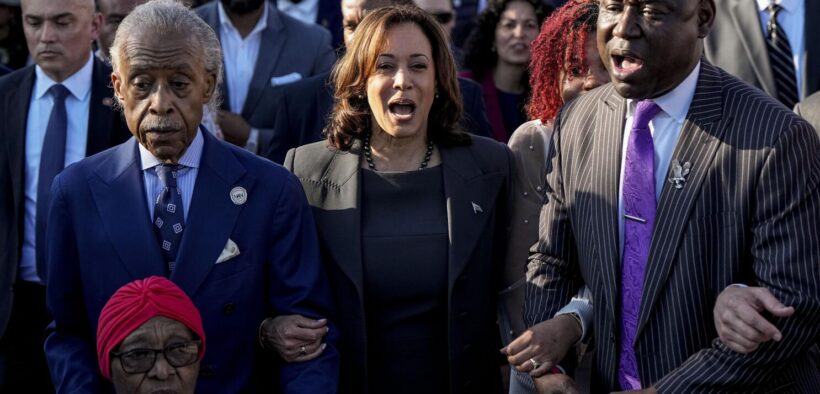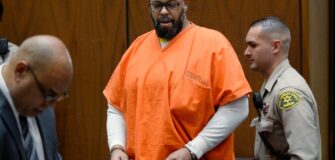How Kamala Harris Led 59th Annual ‘Bloody Sunday’ March in Selma
Share

Vice President Kamala Harris, the first Black woman to hold the office in the United States, took a significant step in leading the 59th annual Bloody Sunday march across the Edmund Pettus Bridge in Selma, Alabama.
The event, which took place just before the anniversary of the brutal attacks on civil rights activists on March 7, 1965, saw Harris joined by her husband, Doug Emhoff, as well as prominent civil rights leaders like Rev. Al Sharpton and Ben Crump.
The march commemorates a pivotal moment in the civil rights movement when activists, including the late Sen. John Lewis and Dr. Martin Luther King Jr., were violently confronted by law enforcement as they demonstrated for voting rights. Kamala Harris, arm in arm with supporters, paid tribute to the courage of those who faced violence that day in pursuit of freedom and equality.
A Call to Action
During her speech, Kamala Harris emphasized the ongoing struggle for civil rights, highlighting the current threats to the hard-won freedoms of the past, particularly the right to vote. She criticized recent attempts to undermine voting rights, such as restrictions on absentee and early voting, and posed a poignant question about the future of the nation: “What kind of country do we want to live in?”
Harris also addressed the broader assault on fundamental freedoms, including gun violence, reproductive rights, and the right to personal safety. She underscored the importance of continuing the fight for justice and equality, echoing the determination of those who marched across the bridge nearly six decades ago.
ALSO READ: Inside Wendy Williams’ Not-So-Glamorous Life, A New Documentary Reveals
A Gathering of Dignitaries and Survivors
The event attracted a host of notable attendees, including U.S. Attorney General Merrick Garland and U.S. Rep. Terri Sewell (D-Ala.), a native of Selma. Also present was Bloody Sunday survivor Eugene Smith, who returned to Selma for the first time since the historic march. His presence served as a poignant reminder of the sacrifices made for civil rights and the ongoing need to protect those gains.
In the spirit of the original marchers, lawmakers are continuing the fight for voting rights with the reintroduction of the John Lewis Voting Rights Advancement Act, named after the late civil rights icon and aimed at restoring and strengthening protections under the Voting Rights Act of 1965.
As the nation reflects on the legacy of Bloody Sunday, Vice President Kamala Harris’s leadership of the march serves as a powerful symbol of progress and a reminder of the work that remains in the quest for justice and equality.




















